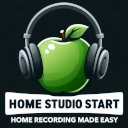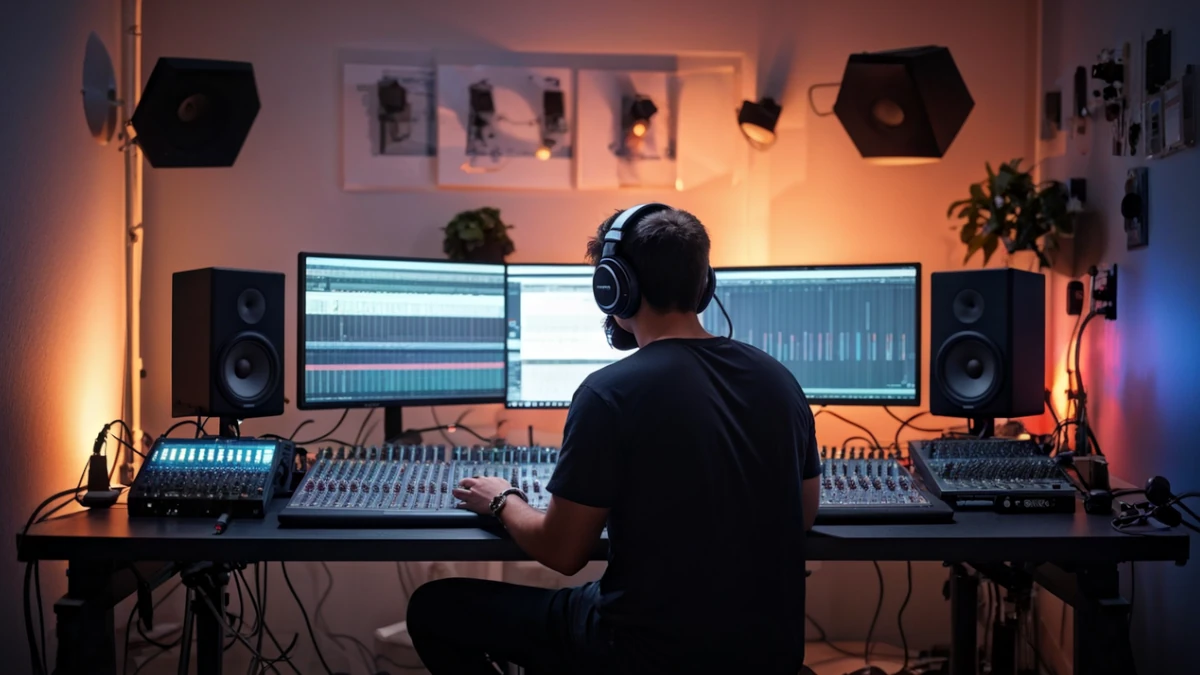When it comes to setting up a home studio, one of the most crucial decisions you’ll make is choosing the right Digital Audio Workstation (DAW). A DAW is the software that allows you to record, edit, and produce high-quality audio from the comfort of your own home. With so many options available, it can be overwhelming to decide which one is right for you. That’s why we’ve put together this comprehensive guide to the top DAWs for home studios.
Whether you’re a seasoned music producer or just starting out, a good DAW can make all the difference in the quality of your recordings. From flexibility and live performance capabilities to user-friendly interfaces and powerful beat-making features, there’s a DAW out there that’s perfect for your needs.
Before we dive into our top picks, let’s talk about what to look for when choosing a DAW for your home studio. First and foremost, consider your budget. Are you willing to invest in a premium DAW, or are you looking for a free or affordable option? Record high-quality audio on your laptop with the right DAW. You’ll also want to think about your skill level and the type of music you’ll be producing. Do you need a DAW with a user-friendly interface and plenty of tutorials and resources, or are you looking for a more advanced feature set?
In the following sections, we’ll take a closer look at the top DAWs for home studios, including their features, pricing, and user interfaces. We’ll also provide tips and considerations for choosing the right DAW for your needs, as well as best practices for setting up your DAW for home studio recording.
Top DAWs for Home Studios
When it comes to home studios, the right Digital Audio Workstation (DAW) can make all the difference in producing high-quality audio recordings. In this section, we’ll explore the top DAWs for home studios, including their features, pricing, and user interfaces.
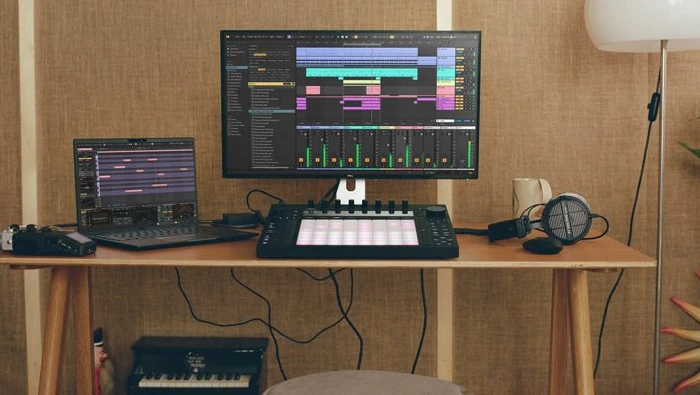
1. Ableton Live
Ableton Live is a popular DAW for home studios, known for its flexibility and live performance capabilities. With its intuitive interface and powerful features, Ableton Live is ideal for musicians who want to create and perform music in real-time. Whether you’re a beginner or a seasoned producer, Ableton Live is a great choice for home studios.
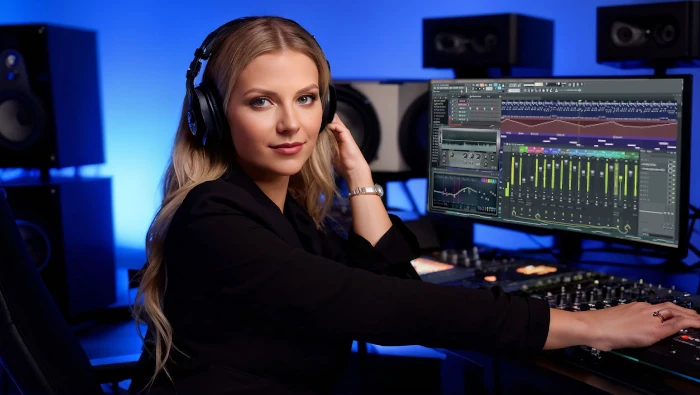
2. FL Studio
FL Studio is another popular DAW, known for its user-friendly interface and powerful beat-making features. With its extensive library of plugins and effects, FL Studio is a favorite among hip-hop and electronic music producers. Whether you’re creating beats or recording vocals, FL Studio has got you covered.
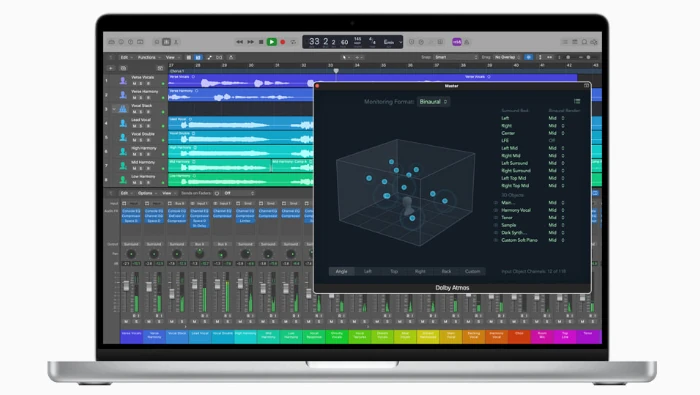
3. Logic Pro X
Logic Pro X is a professional DAW developed by Apple, known for its high-quality sound and user-friendly interface. With its extensive library of plugins and effects, Logic Pro X is ideal for musicians who want to produce high-quality audio recordings. Whether you’re recording vocals or instruments, Logic Pro X is a great choice for home studios.
Additionally, don’t forget that free audio recording software options are also available for those on a budget. These DAWs may not have all the bells and whistles, but they can still help you produce high-quality audio recordings.
Remember, the right DAW can make all the difference in your home studio. Take the time to explore each option and choose the one that best fits your needs and budget.
Choosing the Right DAW for Your Home Studio
When it comes to choosing the right DAW for your home studio, there are several factors to consider. In this section, we’ll provide you with some valuable tips and considerations to help you make an informed decision.
Consider Your Budget
One of the most critical factors to consider when choosing a DAW is your budget. DAWs can range from free to several hundred dollars, so it’s essential to determine how much you’re willing to invest in a DAW. If you’re on a tight budget, consider free or affordable options like Audacity or GarageBand. However, if you’re serious about producing high-quality music, you may want to invest in a premium DAW like Ableton Live or Logic Pro X.
Consider Your Skill Level
Another crucial factor to consider is your skill level. If you’re a beginner, look for a DAW with a user-friendly interface and plenty of tutorials and resources. For example, FL Studio has an excellent user manual and plenty of online tutorials to help you get started. On the other hand, if you’re an experienced producer, you may want a DAW with more advanced features and customization options.
Consider Your Music Style
The type of music you produce is also an essential factor to consider when choosing a DAW. For example, if you produce hip-hop music, you may want a DAW with powerful beat-making features like FL Studio. If you produce electronic music, you may want a DAW with advanced MIDI editing features like Ableton Live.
Consider the Compatibility
Finally, consider the compatibility of the DAW with your operating system and hardware. Make sure the DAW is compatible with your computer’s operating system and that it can integrate with your audio interface and other equipment.
By considering these factors, you can choose a DAW that meets your needs and helps you produce high-quality music. Remember, the right DAW can make a significant difference in your music production journey. So, take your time, do your research, and choose a DAW that’s right for you. Check the First steps on how to build an audio home studio and choose the right home studio setup for your music production needs.
Setting Up Your DAW for Home Studio Recording
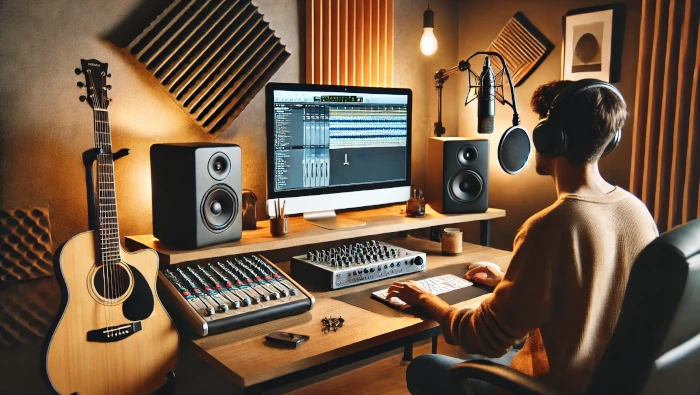
When it comes to setting up your DAW for home studio recording, there are several key factors to consider. In this section, we’ll dive into the essential steps to get your DAW up and running, ensuring you’re ready to start recording high-quality audio in no time.
Setting Up Your Audio Interface
The first step in setting up your DAW is to connect your audio interface to your computer. This device acts as a bridge between your microphone or instruments and your computer, allowing you to capture high-quality audio. When choosing an audio interface, consider the number of inputs you need, the type of connectors (e.g., USB, Thunderbolt), and the compatibility with your computer and DAW.
Once you’ve connected your audio interface, you’ll need to install the necessary drivers and software. This will typically involve downloading and installing the manufacturer’s software, which will allow your computer to recognize the interface and enable you to start recording.
Choosing the Right Microphone
Selecting the right microphone is crucial for capturing high-quality audio in your home studio. With so many options available, it can be overwhelming, but consider the following factors to narrow down your choices:
- Polar pattern: Do you need an omnidirectional, cardioid, or supercardioid microphone?
- Frequency response: What range of frequencies do you need to capture (e.g., vocals, instruments, drums)?
- Budget: How much are you willing to invest in a microphone?
Some popular microphone options for home studios include the Blue Yeti, Rode NT1-A, and Shure SM7B. Be sure to research and read reviews to find the best microphone for your specific needs and budget.
Optimizing Your Recording Space
Your recording space can greatly impact the quality of your audio recordings. To optimize your space, consider the following tips:
- Acoustics: Treat your room with acoustic panels or DIY solutions to reduce echo and reverberation.
- Noise reduction: Use noise-reducing materials or invest in a portable vocal booth to minimize external noise.
- Mic placement: Experiment with mic placement to find the sweet spot for your instrument or vocal recording.
By following these essential steps, you’ll be well on your way to setting up your DAW for home studio recording. Remember to take your time, experiment with different settings and techniques, and don’t be afraid to ask for help or seek resources when needed.
Looking for recording vocals? Unlock studio-quality sound with top microphones for recording vocals at home.
DAWs for Specific Music Styles
When it comes to choosing a DAW for your home studio, it’s essential to consider the type of music you want to produce. Different DAWs are better suited for specific music styles, and understanding these differences can help you make an informed decision.
DAWs for Hip-Hop Production
Hip-hop producers often require a DAW that can handle heavy beat-making, sampling, and rhythmic editing. FL Studio and Ableton Live are two popular DAWs among hip-hop producers. FL Studio’s beat-oriented workflow and powerful drum machine make it an ideal choice for creating hip-hop beats. Ableton Live’s flexibility and live performance capabilities also make it a favorite among hip-hop artists.
DAWs for Electronic Music Production
Electronic music producers often require a DAW that can handle complex synthesizer programming, effects processing, and MIDI sequencing. Ableton Live and Logic Pro X are two popular DAWs among electronic music producers. Ableton Live’s vast library of instruments and effects, as well as its flexibility in creating custom workflows, make it an ideal choice for electronic music production. Logic Pro X’s high-quality sound and user-friendly interface also make it a popular choice among electronic music producers.
DAWs for Rock and Pop Music Production
Rock and pop music producers often require a DAW that can handle recording and editing live instruments, as well as mixing and mastering. Logic Pro X and Ableton Live are two popular DAWs among rock and pop music producers. Logic Pro X’s high-quality sound and user-friendly interface make it an ideal choice for recording and editing live instruments. Ableton Live’s flexibility and live performance capabilities also make it a popular choice among rock and pop music producers.
When choosing a DAW for your specific music style, consider the following factors:
- Beat-making and rhythmic editing: If you’re producing hip-hop or electronic music, look for a DAW that can handle complex rhythmic editing and beat-making.
- Instrument and effects processing: If you’re producing electronic music, look for a DAW that can handle complex synthesizer programming and effects processing.
- Live instrument recording and editing: If you’re producing rock or pop music, look for a DAW that can handle recording and editing live instruments.
By considering these factors and understanding the strengths and weaknesses of each DAW, you can make an informed decision and choose the right DAW for your specific music style.
Discover 5 most amazing technologies you can’t miss in your home studio for music production.
